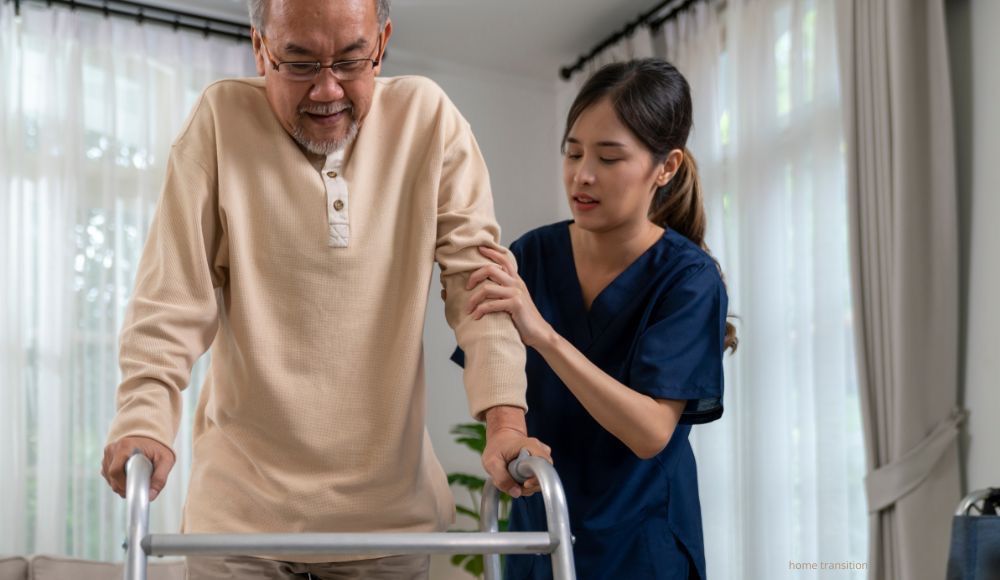Talking to Aging Parents About Getting Help – 8 Helpful Tips
Most of us look up to our parents and ask for their help and advice as we grow up. They taught you how to tie your shoes, drive a car, and do the laundry, and they probably helped you with your homework, pay for college, and when making life-changing decisions.
As you both age, you may find a time when the tables are turned, and your parents are the ones who need help and guidance. Maybe they've been in several accidents, and you're concerned their driving skills may not be what they used to be. Perhaps they seem confused about what medications to take, and you're worried they'll take the wrong medication, too much, or completely forget to take it.
But for someone who has worked (possibly in a stressful, highly-regarded position with a great deal of responsibility) and taken care of themselves and others for many years, the idea of getting help from a professional caregiver may be hard to accept. That conversation can be difficult for both aging parents and their grown children.
Tips for Talking to Parents About Getting Professional Help
- Emphasize the Advantages
Talk to them about the advantages of seeking the help of a professional caregiver for you (more on that later) and them.
- Makes it safer for them to age at home rather than moving.
- Provides companionship, especially for someone living alone.
- Offers flexibility.
- Provides a more affordable alternative.
- Helps them maintain their independence.
- If they hate a chore, such as cooking or laundry, the caregiver can do it. - Focus on IndependenceAccording to the
Pennsylvania Association of Realtors, 85% of Americans over 55 want to age in place. If your aging parent is one of them, explain how a professional caregiver can allow them to remain independent and continue to live at home. For example, a caregiver can ensure they eat nutritional meals to keep them healthier. A caregiver can also provide companionship, which, according to the
Institute on Aging, "promotes better mental health, better physical health, creates new routines, and really, just makes life better."
- Make it About Someone Else
If your parents live together, you can explain how a caregiver will make their spouse's life so much easier. If they live alone, you can explain how a caregiver will give you peace of mind. - Be EmpatheticEmpathy is "the action of understanding, being aware of, being sensitive to, and vicariously experiencing the feelings, thoughts, and experience of another." Try to put yourself in your parent's shoes when you talk to them about getting help. Tell them you understand how difficult this may be and acknowledge and address their fears and concerns.
- Include Your Parents in the Decision Making
Very few people like to be told what to do, so instead of telling your parents they need help, discuss your concerns, provide options, and ask how they feel about the situation or if they have a solution. - Start Small
If your aging parent resists the idea of a professional caregiver, consider starting small. For example, maybe the caregiver can start by cleaning and going grocery shopping for them. As they begin to see the benefits of a caregiver, they may become more open to additional help. - Ask a Professional
Discuss your concerns with your parent's primary care physician or a geriatric care manager. If they agree with you, they may be willing to talk to your parents, and many older adults value a physician's opinion. - Choose Your Battles
No one likes to be nagged, even if it comes from the heart with the person's best interest in mind. If your aging parent is resistant to the idea of seeking help, focus on the most crucial issue and realize you may need to let some things slide… for now.
Request a FREE Consultation with a Licensed Nurse
If you or your aging parent are ready to look at your options for a professional caregiver, Comforting Home Care by Phoebe can help.
Request a free, no-obligation consultation with a licensed nurse in the comfort of your home. Our nurse will provide feedback, options, and recommendations as part of the in-home assessment.
Call us today at 610-625-5206 to learn more about our in-home care services, or connect with us online.
More From Our Blog
✔︎ Locally owned and operated,
Dedicated to our local community.

Berks County Office
Comforting Home Care by Phoebe
1 Reading Dr
Wernersville, PA 19565
Phone: 610-625-5206
Lehigh Valley Office
Comforting Home Care by Phoebe
1925 W. Turner Street
Allentown, PA 18104
Phone: 610-625-5600
The region's premier home care provider in Berks, Bucks, Lehigh, and Northampton Counties, including Allentown, Bath, Bethlehem, Easton, Emmaus, Fleetwood, Fogelsville, Hamburg, Hellertown, Hereford, Kutztown, Laurys Station, Leesport, Macungie, Mertztown, Mohnton, Nazareth, New Tripoli, Northampton, Oley, Orefield, Quakertown, Reading, Richlandtown, Robesonia, Schnecksville, Shillington, Shoemakersville. Sinking Spring, Temple, Topton, Trexlertown, Wernersville, Whitehall, Womelsdorf, Wyomissing, & Zionsville,
© Copyright 2023 | All Rights Reserved | Comforting Home Care by Phoebe
Website by Power Marketing International











